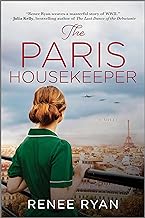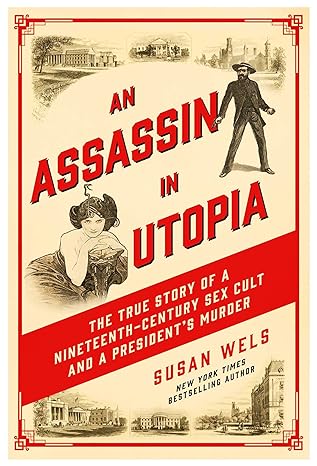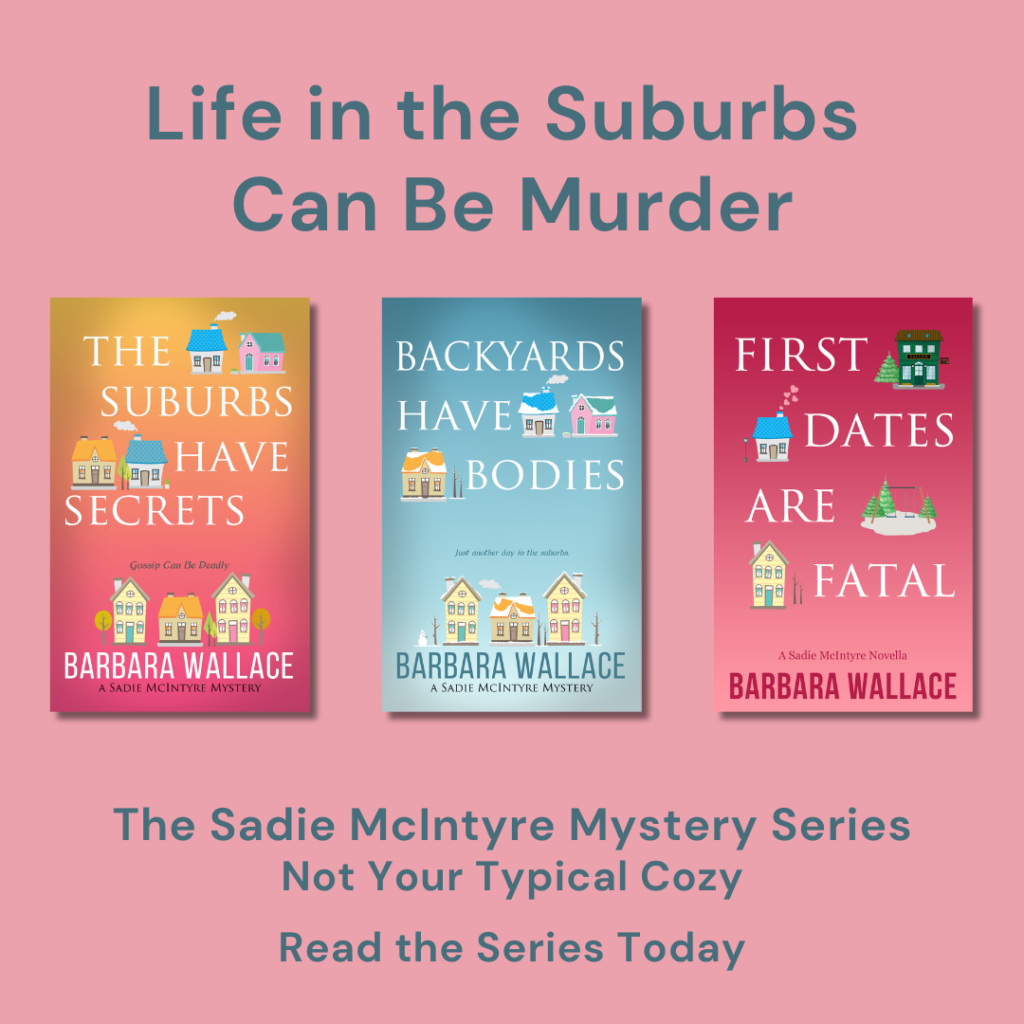
Happy First Friday of 2024!
First, The Reviews
December is never a big reading month for me. Making the holidays happen takes up too much time. Plus, I was researching for my new book which meant a lot of my free time was spent online reading Italian magazines and newspapers. (No, I do not speak Italian; God bless Google Translate.)
Anyway, I have two books to recommend this month.
The Paris Housekeeper by Renee Ryan

I make no secret of the fact that Renee is a good friend. Even if she wasn’t, however, I would still enjoy her books. She’s a fantastic writer who doesn’t get nearly enough attention from her publisher. (More on that, in a minute.)
Right before I picked up Renee’s book, I read a WW2 historical by another well-known author. She, the author, is an amazing writer, but this particular book didn’t connect with me. I figured it was because I was burnt out on WW2. After all, I’d read a bunch of WW2-era books and I’m writing one of my own. But The Paris Housekeeper showed me that with the proper depth and strong characters, WW2 books can still be exciting. What started as a very good historical fiction story turns into a nail-biting page-turner. The climax had me glued to the page.
The Paris Housekeeper has three characters. Rachel, Camille, and Vivian. Rachel and Camille work at Paris’s famed Ritz, while Vivian is a rich American widow who lives there. When the Germans invade France, the three women find themselves involved in a dangerous plan to save Rachel from deportation to Auschwitz. All is well until an unthinkable betrayal endangers the plan and their lives.
There’s no need to go into detail about the rescue plot because we all know how rescue stories work. Besides, like I said, it’s the characters that matter. Camille’s story was inspired by a real-life French woman who worked as a Nazi’s housekeeper and smuggled Jews out of Paris. (There seems to be no end to the stories of individual bravery during WW2. It’s awe-inspiring.) As the Jewish victim, Rachel was at once sympathetic. You feel for her as the Nazi’s cruelty slowly destroys her family.
Then there’s Vivian, the survivor who long ago lost her idealism. As the wolf in designer sheep’s clothing, it was her journey that captivated me the most. Was she a hero or a self-serving villain? There were times when I didn’t think Vivian knew herself. I loved how she dwelled in the shadows. Usually with WW2 books, everything is black and white.
Those gray areas are what make The Paris Housekeeper stand out. This book is about choices and the morally ambiguous space war forces people to live in. Is it all right to embrace evil for the sake of good? Can a person straddle the line between good and evil? What happens to dignity when desperation strikes? These are the questions plaguing Ryan’s characters. And it’s their answers that drive the plot to its spectacular climax.
Renee Ryan gets stronger with each book. Fans of Kelly Rimmer and Pam Jenoff will love this book.
I do have one complaint. Renee’s books are published under Harlequin’s Love Inspired imprint. For those who don’t know, Love Inspired is known for Christian romance. I don’t know what Harlequin was thinking because The Paris Housekeeper is not a romance novel. Hopefully, Harlequin will smarten up and move under the same umbrella as Pam Jenoff and other historical fiction authors.
In the meantime, I urge people to give The Paris Housekeeper the love it deserves and buy a copy.
THE PARIS HOUSEKEEPER
Amazon: https://bit.ly/3RQ2wtN
Barnes & Noble: https://bit.ly/3GVoxB2
Bookshop.org: https://bit.ly/3NyA5hw
An Assassin in Utopia: The True Story of a Nineteenth-Century Sex Cult and a President’s Murder by Susan Wels

I knew very little about Garfield or his assassination. He was a man who didn’t want to be president, got elected anyway, and then died at the hands of a man driven mad by a desire to be famous. The title refers to the Oneida Community, a utopian religious sect in Oneida, New York where Charles Guiteau lived for five years. The Oneida Community believed in group marriage, with most marriages being between older men and teenage girls. (Hence, the polygamy cult reference.)
Wels doesn’t just tell the story of Garfield’s assassination, however. She veers off into dozens of fascinating side roads. Wels book splits off into dozens of side roads perfect for rabbit hole lovers like me. For example, did you know that Oneida Flatware began as a business for the Oneida Community? Or that Greeley, Colorada began as a prohibition-style utopian experiment baked by none other than P.T. Barnum?
There are stories about Ulysses S. Grant, Horace Greeley, spiritualism, backroom politics, and more. Somehow Wels manages to tie them together in a complex spiderweb of relationships and coincidences. The result is a picture of 19th-century America more vivid than anything you’d find in a history book.
I listened to this book on audio during one of my drives to Vermont. It made ten hours of driving fly by. Therefore, if you love history, research rabbit holes, and interesting facts, I suggest you pick up An Assassin in Utopia.
AN ASSASSIN IN UTOPIA by Susan Wels
Amazon: https://bit.ly/48Fp4mE
Barnes & Noble: https://bit.ly/3TQl5j0
Bookshop.org: https://bit.ly/47pAklW
Now, The Rant:
There’s been a lot of talk over the past two weeks about book reviews. Specifically, whether a reader should leave a negative review. I was surprised how many writers said they shouldn’t because anything less than five stars lowers the aggregate.
What’s the point of asking for reviews then? Why review books at all if we want to pretend every book is an awesome, perfect unicorn loved by all?
Readers do not owe us five stars. They don’t owe us anything. Our job is to give them our best effort. We can’t control whether they like our work. We can hope they do, but their opinion is their own. And readers have the right to their opinions.
As a writer, I’ve had my share of bad reviews. They hurt to read. Some have ripped apart my self-confidence. But I’ve never begrudged a reader the right to dislike my book.
As a reviewer, I’m very conscious of being kind. After all, there for the grace of God…. If I don’t groove on a book, I make a point of saying why, and reminding readers that while the book didn’t work for me, my view isn’t everyone’s.
Because that’s all a bad review is. One person’s opinion. One opinion is not going to make or break your book sales. Nor will a 3.7 or whatever rating. In fact, writers should want multiple reviews. Buyers aren’t stupid. They know that no book is universally loved by everyone. A book with zero negative reviews rings more warning bells than a book whose review graph looks like, well a graph.
So, could we stop with obsessing over review numbers, and spend more time worrying about writing a good story?
Readers, let me say this right now. Review my book or don’t review my book; it’s up to you. Hate my book if you want, although I hope you don’t. You don’t owe me a thing.
Speaking of Reviews….
Have you read the Sadie McIntyre Series yet? It’s available on Amazon.



